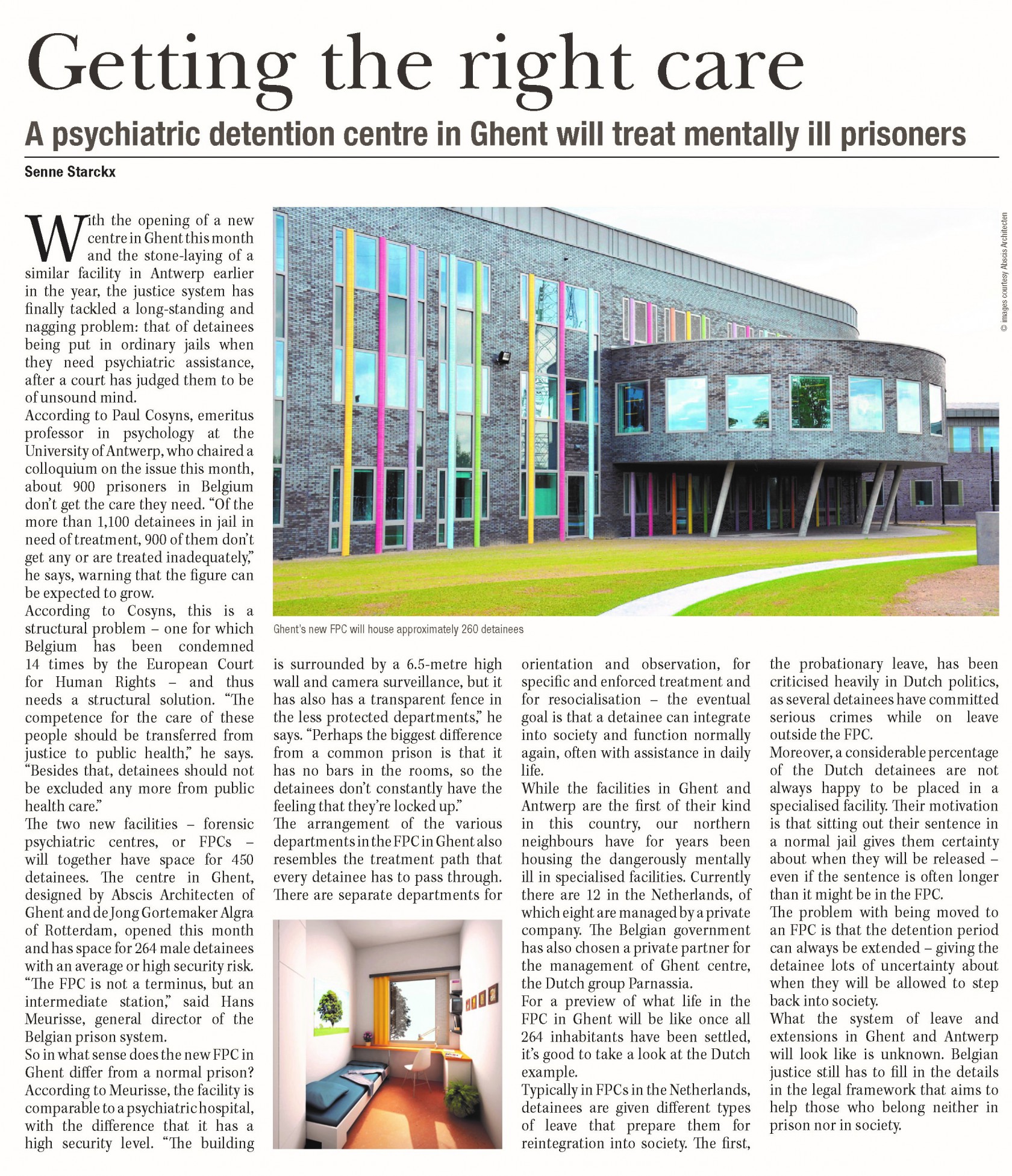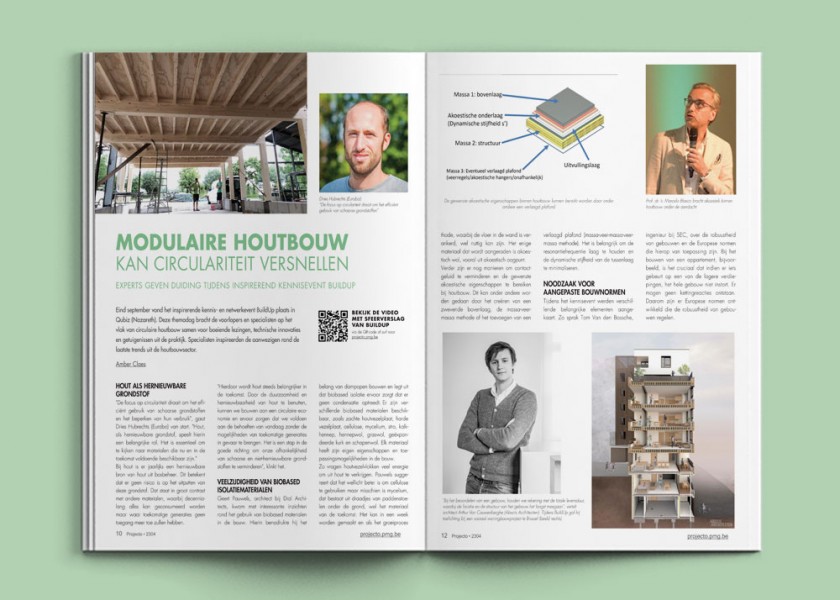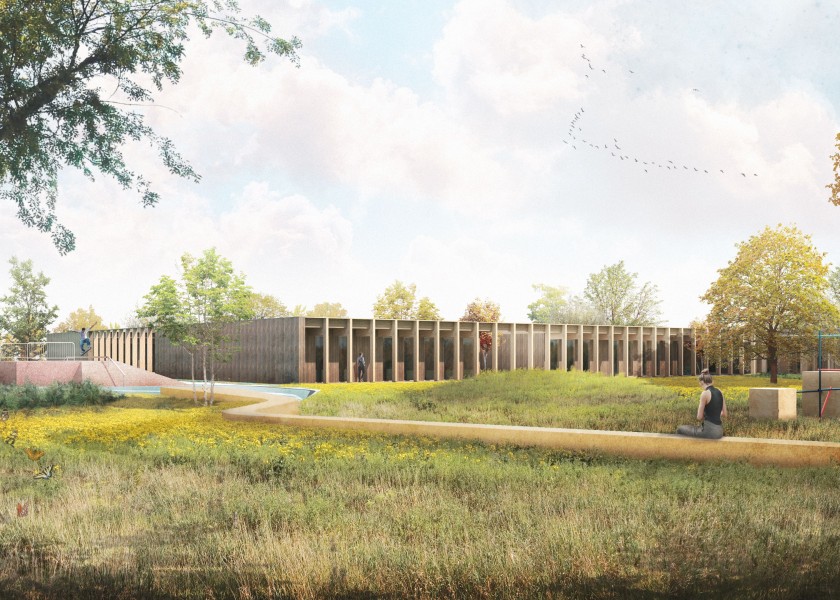
Flanders today
Ghent detention centre offers security and specialised care
With the opening of a new centre in Ghent this month and the stone-laying of a similar facility in Antwerp earlier in the year, the justice system has finally tackled a longstanding and nagging problem: that of detainees being put in ordinary jails when they need psychiatric assistance, after a court has judged them to be of unsound mind.
According to Paul Cosyns, emeritus professor in psychology at the University of Antwerp, who chaired a colloquium on the issue this month, about 900 prisoners in Belgium don’t get the psychiatric care they need.
“Of the more than 1,100 detainees in jail in need of treatment, 900 of them don’t get any or are treated inadequately,” he says, warning that the figure can be expected to grow. According to Cosyns, this is a structural problem – and one for which Belgium has been condemned 14 times by the European Court for Human Rights – and thus needs a structural solution.
“The competence for the care of these people should be transferred from justice to public health,” he says. “Besides that, detainees should not be excluded any more from public health care.”
The two new facilities – forensic psychiatric centres, or FPCs – will together have space for 450 detainees. The centre in Ghent, designed by Abscis Architecten of Ghent and de Jong Gortemaker Algra of Rotterdam, opened this month and has space for 264 male detainees with an average or high security risk. “The FPC is not a terminus, but an intermediate station,” said Hans Meurisse, general director of the Belgian prison system.
So in what sense does the new FPC in Ghent differ from a normal prison? According to Meurisse, the facility is comparable to a psychiatric hospital, with the difference that it has a high security level. “The building is surrounded by a 6.5-metre high wall and camera surveillance, but it has also has a transparent fence in the less protected departments,” he says. “Perhaps the biggest difference from a common prison is that it has no bars in the rooms, so the detainees don’t constantly have the feeling that they’re locked up.”
The arrangement of the various departments in the FPC in Ghent also resembles the treatment path that every detainee has to pass through. There are separate departments for orientation and observation, for specific and enforced treatment and for resocialisation – the eventual goal is that a detainee can integrate into society and function normally again, often with assistance in daily life.
While the facilities in Ghent and Antwerp are the first of their kind in this country, our northern neighbours have for years been housing the dangerously mentally ill in specialised facilities. Currently there are 12 in the Netherlands, of which eight are managed by a private company. The Belgian government has also chosen a private partner for the management of Ghent centre, the Dutch group Parnassia.
For a preview of what life in the FPC in Ghent will be like once all 264 inhabitants have been settled, it’s good to take a look at the Dutch example.
Typically in FPCs in the Netherlands, detainees are given different types of leave that prepare them for reintegration into society. The first, the probationary leave, has been criticised heavily in Dutch politics, as several detainees have committed serious crimes while on leave outside the FPC.
Moreover, a considerable percentage of the Dutch detainees are not always happy to be placed in a specialised facility. Their motivation is that sitting out their sentence in a normal jail gives them certainty about when they will be released – even if the sentence is often longer than it might be in the FPC.
The problem with being moved to an FPC is that the detention period can always be extended – giving the detainee lots of uncertainty about when they will be allowed to step back into society.
What the system of leave and extensions in Ghent and Antwerp will look like is unknown. Belgian justice still has to fill in the details in the legal framework that aims to help those who belong neither in prison nor in society.


